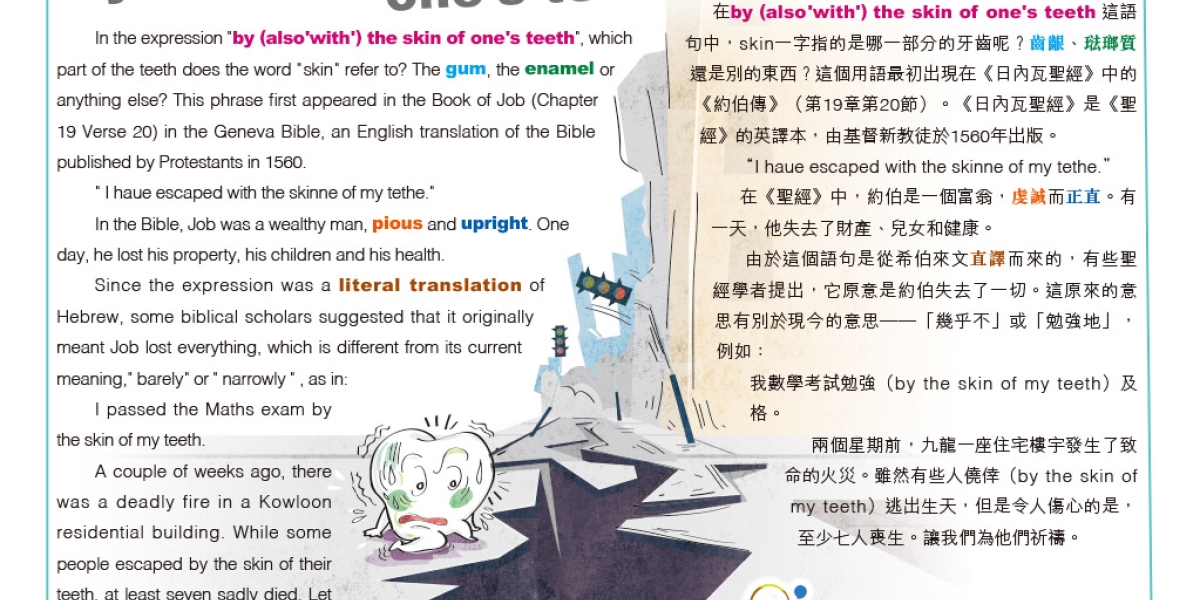
By the skin of one's teeth
In the expression " by (also 'with ') the skin of one 's teeth ", which part of the teeth does the word " skin " refer to? The gum, the enamel or anything else? This phrase first appeared in the Book of Job (Chapter 19 Verse 20) in the Geneva Bible, an English translation of the Bible published by Protestants in 1560.
"I haue escaped with the skinne of my tethe."
In the Bible, Job was a wealthy man, pious and upright. One day, he lost his property, his children and his health.
Since the expression was a literal translation of Hebrew, some biblical scholars suggested that it originally meant Job lost everything, which is different from its current meaning, " barely " or " narrowly " , as in:
I passed the Maths exam by the skin of my teeth.
A couple of weeks ago, there was a deadly fire in a Kowloon residential building. While some people escaped by the skin of their teeth, at least seven sadly died. Let us pray for them.
在by (also 'with') the skin of one's teeth 這語句中,skin一字指的是哪一部分的牙齒呢?齒齦、琺瑯質還是別的東西?這個用語最初出現在《日內瓦聖經》中的《約伯傳》(第19章第20節)。《日內瓦聖經》是《聖經》的英譯本,由基督新教徒於1560年出版。
“I haue escaped with the skinne of my tethe.”
在《聖經》中,約伯是一個富翁,虔誠而正直。有一天,他失去了財產、兒女和健康。
由於這個語句是從希伯來文直譯而來的,有些聖經學者提出,它原意是約伯失去了一切。這原來的意思有別於現今的意思──「幾乎不」或「勉強地」,
例如:我數學考試勉強(by the skin of my teeth)及格。
兩個星期前,九龍一座住宅樓宇發生了致命的火災。雖然有些人僥倖(by the skin of my teeth)逃出生天,但是令人傷心的是, 至少七人喪生。讓我們為他們祈禱。

捐款支持公教報 http://kkp.org.hk/donation






